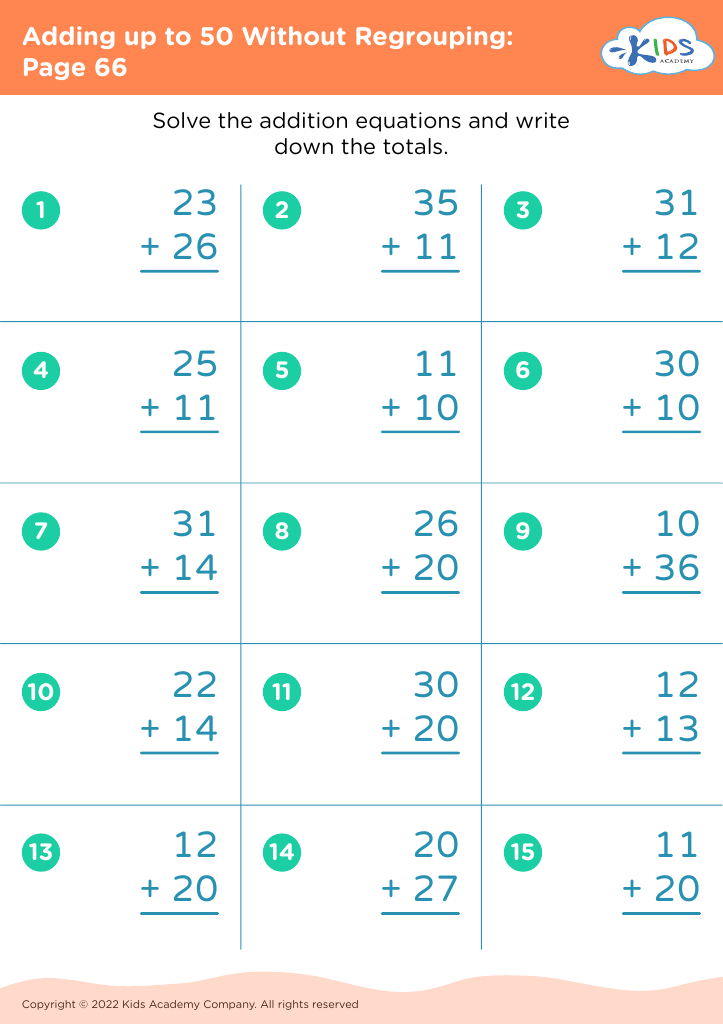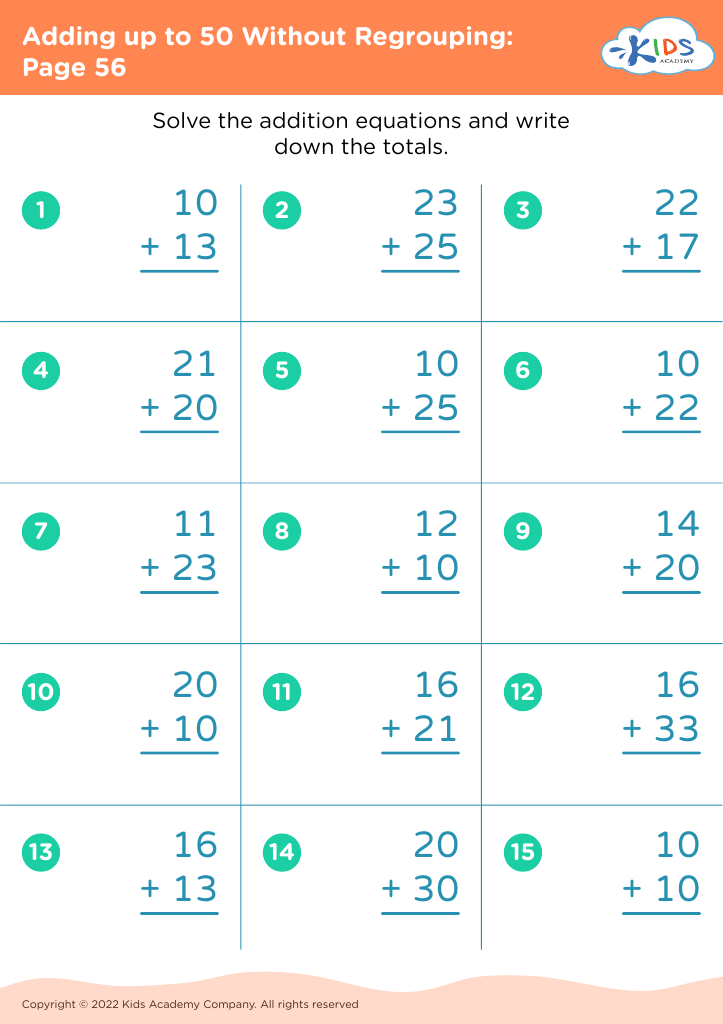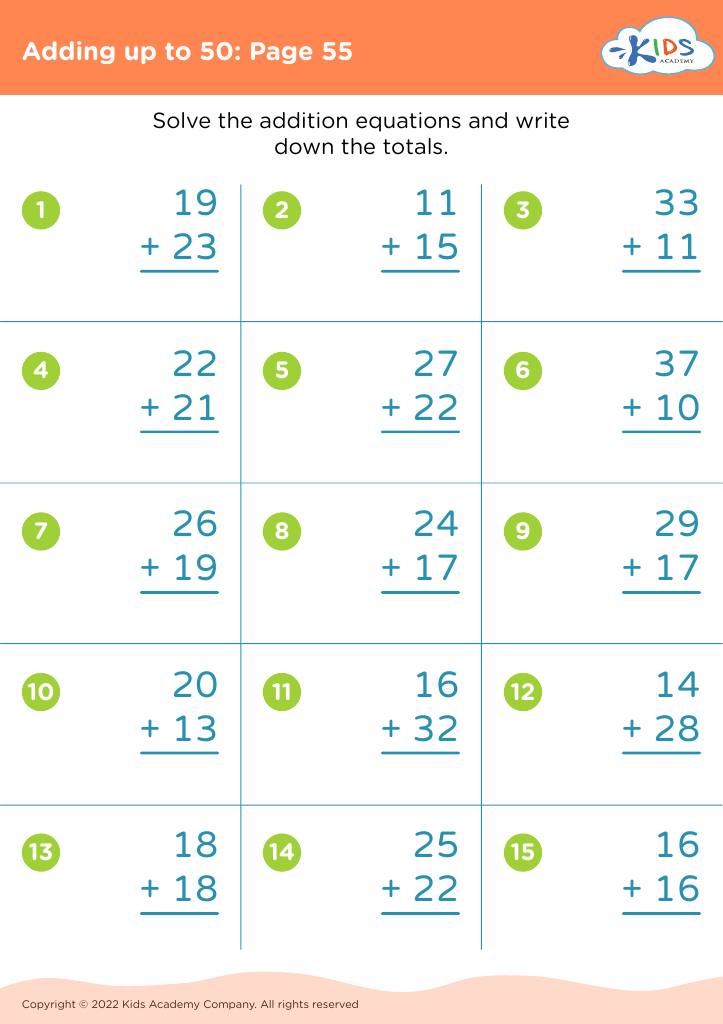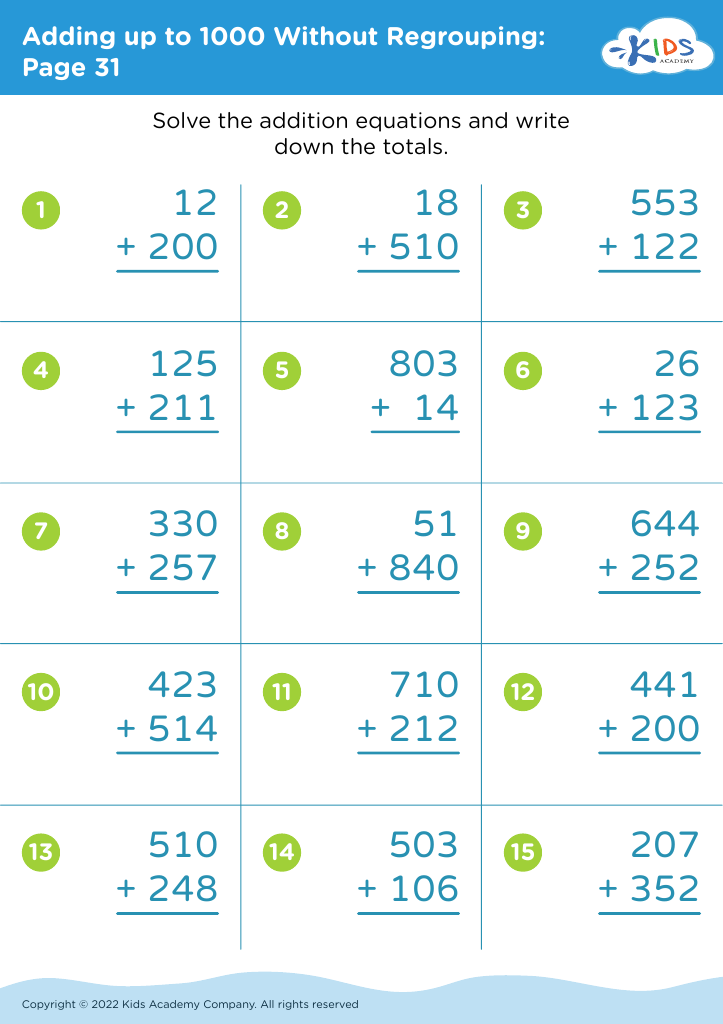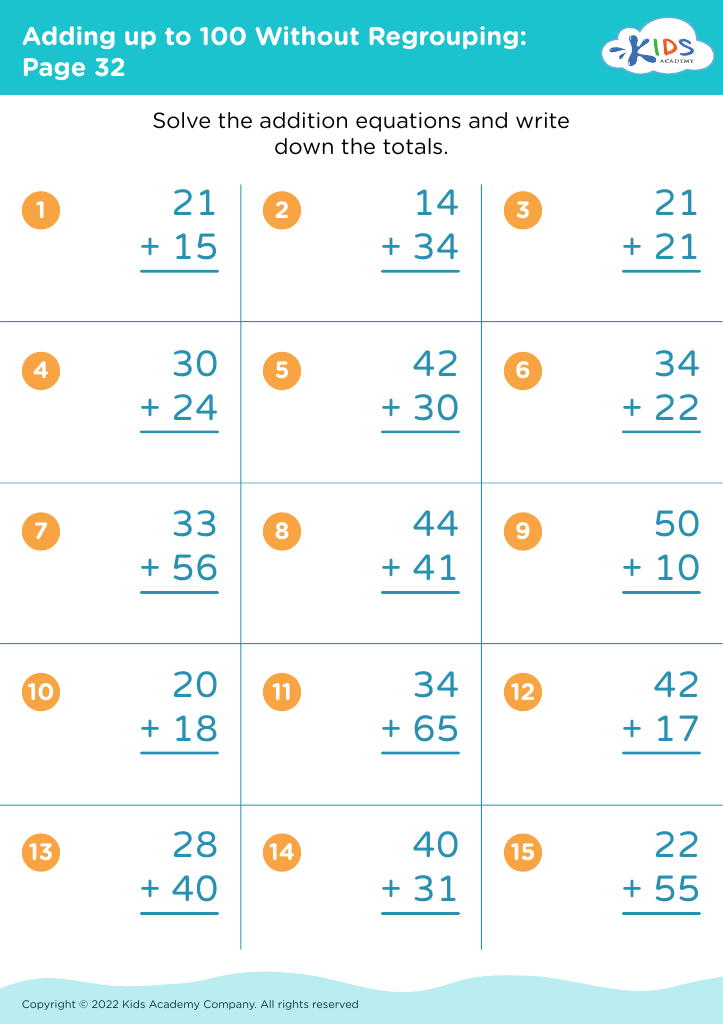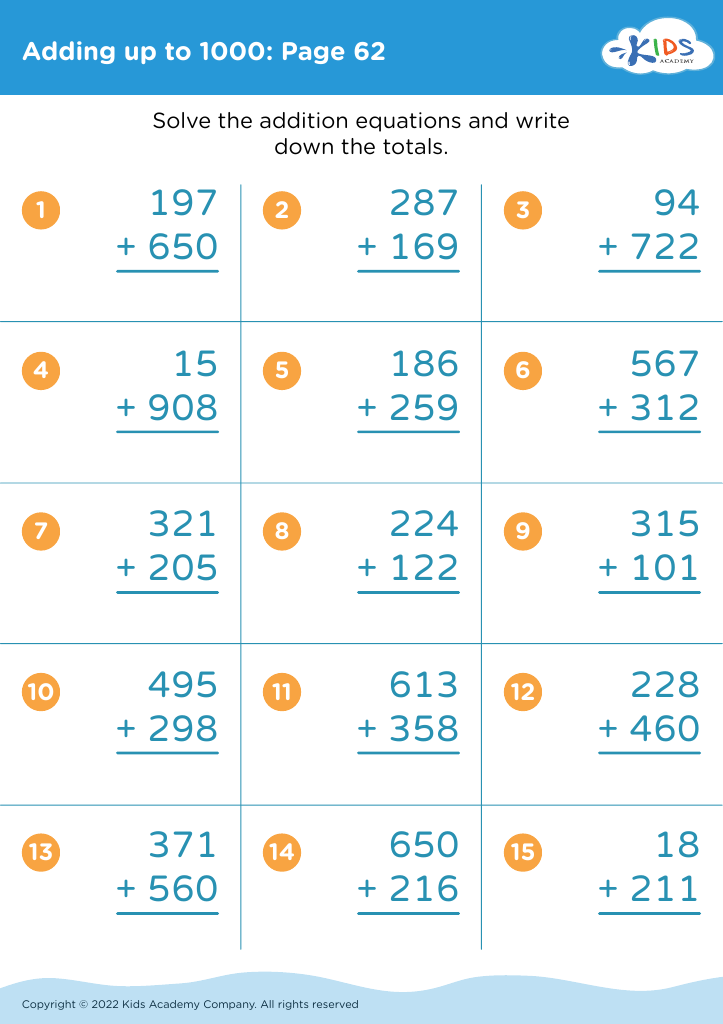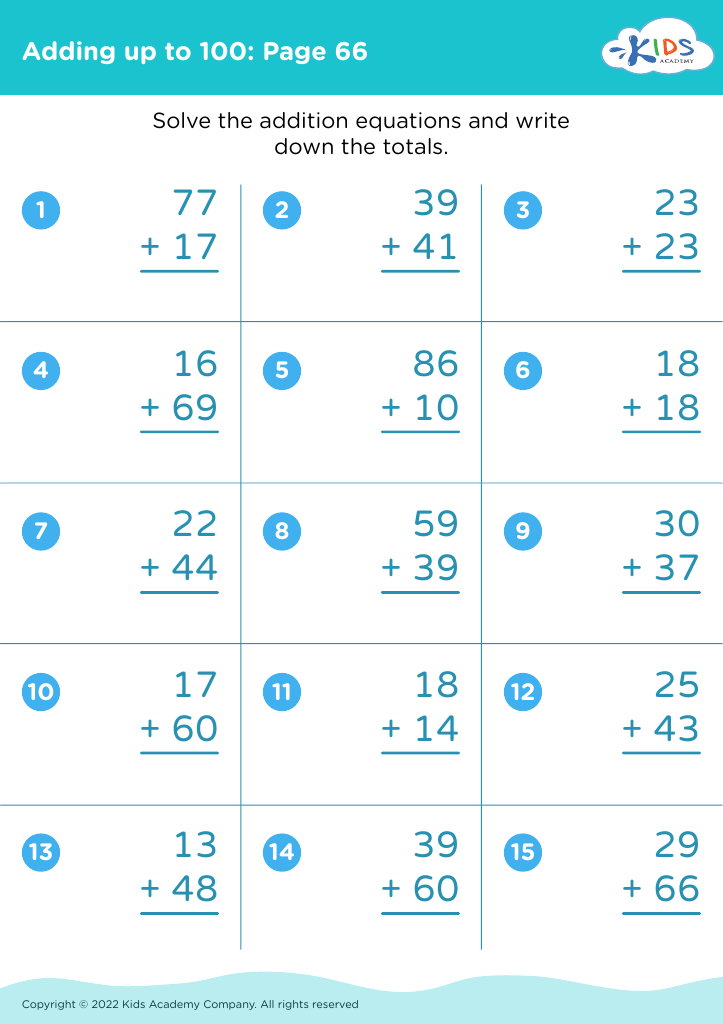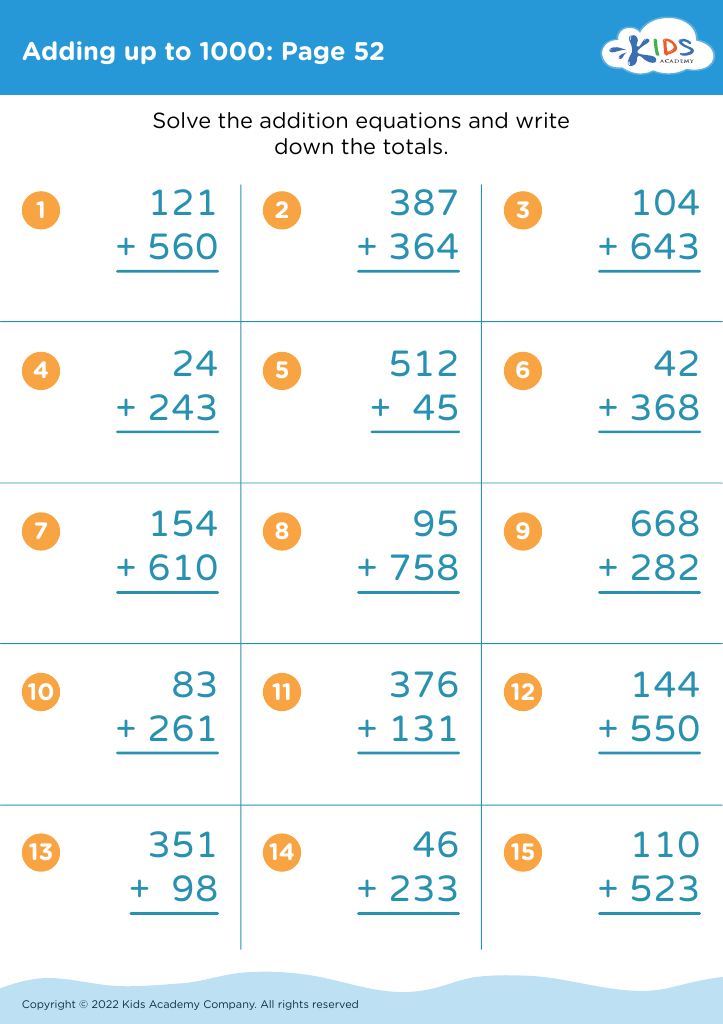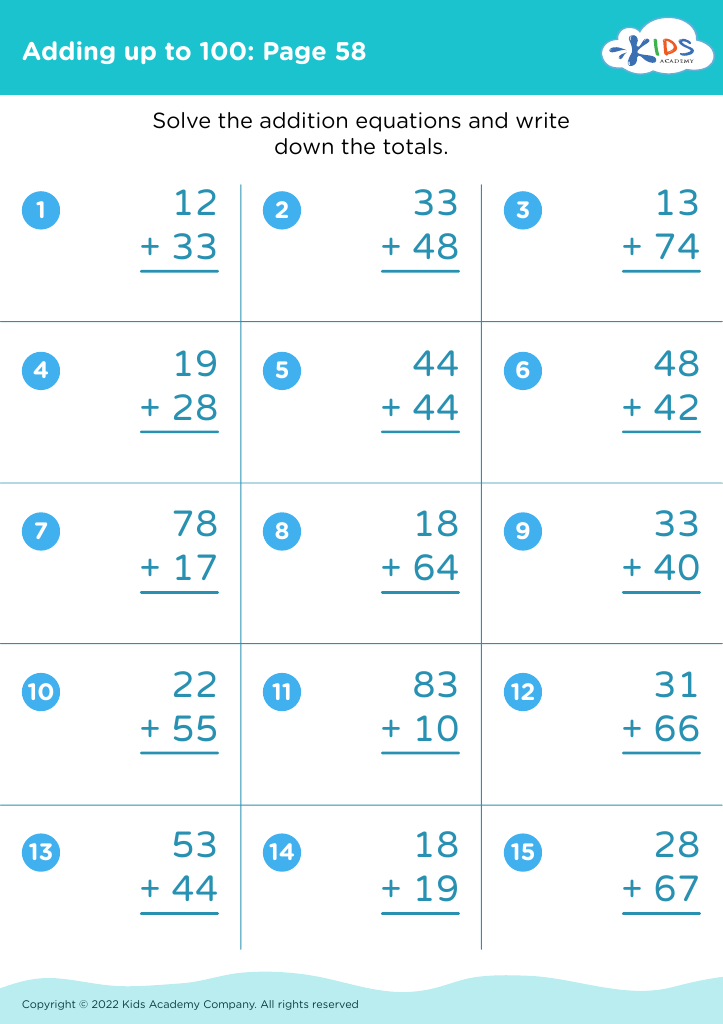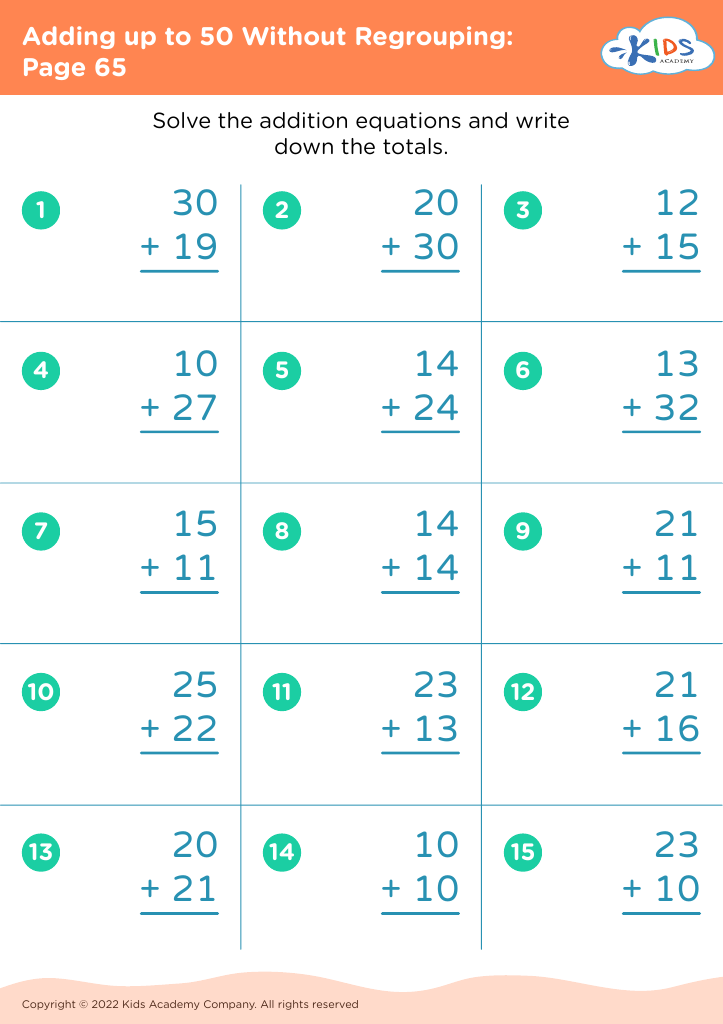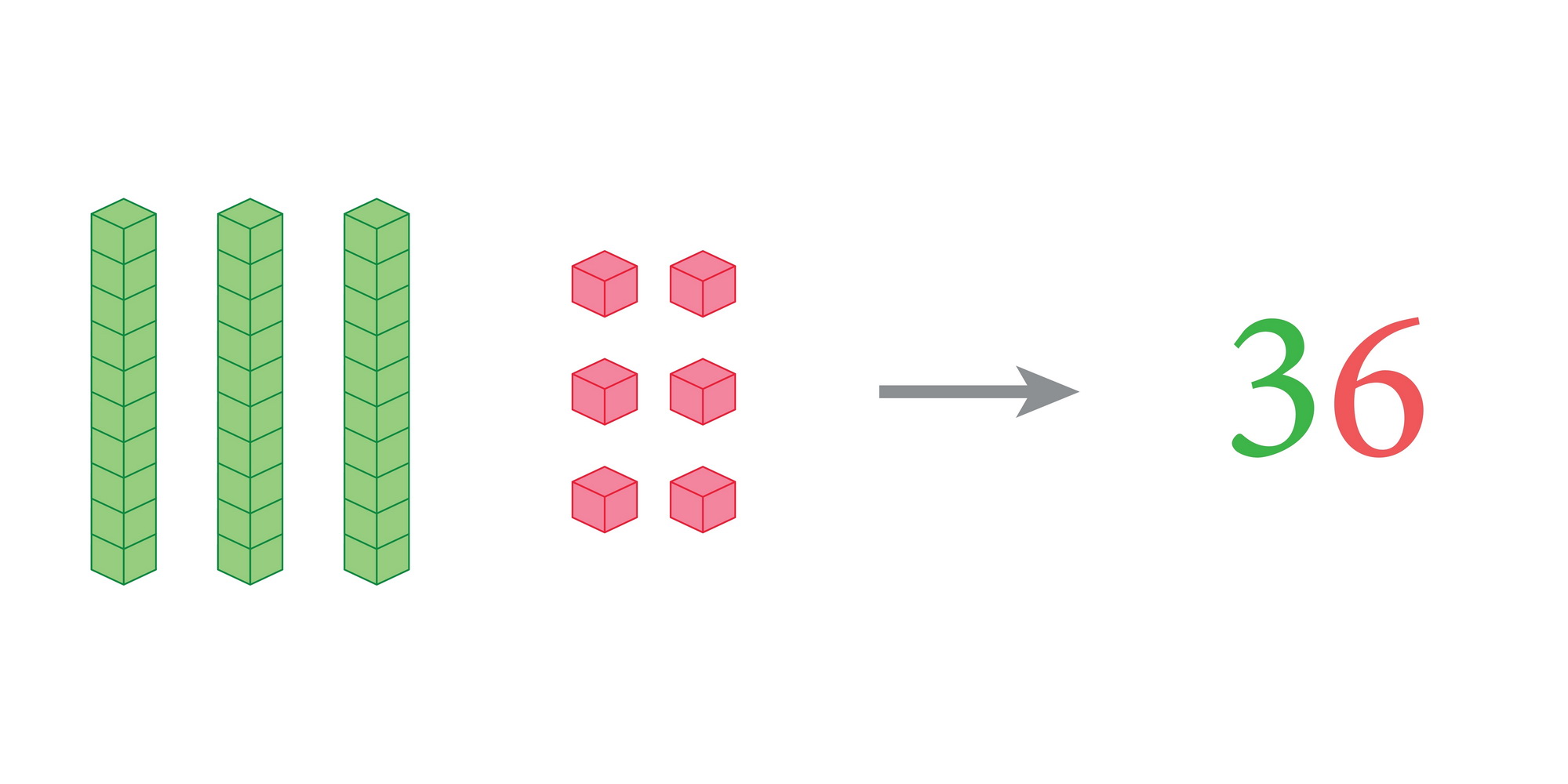Understand fractions Addition Worksheets for Ages 4-7
19 filtered results
-
From - To
Explore our "Understand Fractions Addition Worksheets" designed specifically for children aged 4-7. These engaging worksheets introduce the concept of fractions through fun and interactive activities, helping young learners grasp the basics of adding fractions. With colorful visuals and kid-friendly explanations, our resources make learning enjoyable and effective. Perfect for parents and educators, these worksheets foster essential math skills while encouraging problem-solving and critical thinking. Whether at home or in the classroom, our tailored materials support early learners in understanding fractions, setting a strong foundation for future math success. Dive in today and watch your child’s math confidence soar!
Understanding fractions and their addition is crucial for children aged 4-7 as it lays the foundation for their mathematical education. At this early age, kids are developing their cognitive skills and learning to recognize relationships between numbers and quantities. Introducing fractions helps them learn about parts of a whole, promoting essential concepts such as partitioning, equivalency, and proportional reasoning.
Parents and teachers should care about teaching this subject because it enhances problem-solving skills. When children learn to add fractions, they are not merely combining numbers, but also gaining experience in visualizing and manipulating amounts. This skill is not only applicable in mathematics but also in everyday life situations, such as cooking or sharing.
Moreover, understanding fractions builds confidence. As they grasp these concepts, children feel more empowered to tackle complex problems later on, fostering a positive attitude toward math. Additionally, early experiences with fractions contribute to overall mathematical fluency and a solid entry point into more advanced topics in later grades.
In summary, emphasizing the understanding and addition of fractions during these formative years nurtures critical thinking, problem-solving abilities, and instills a lifelong appreciation for mathematics, paving the way for future academic success.

